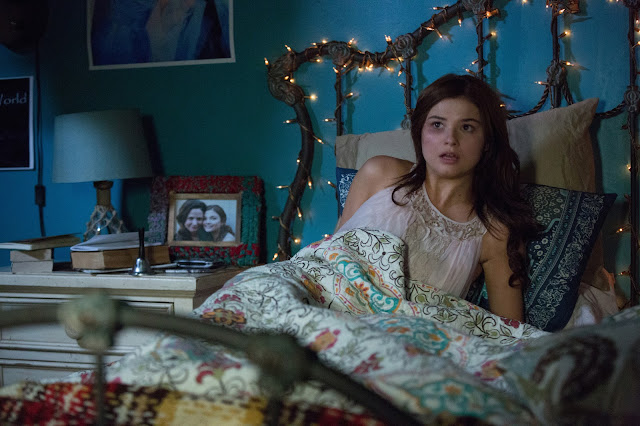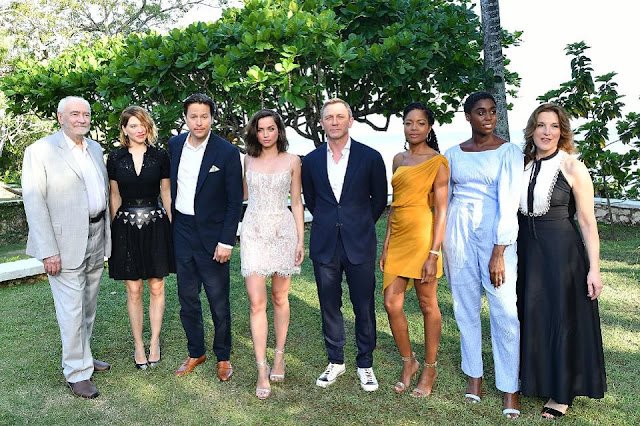The Horror Genre is an Audience Favourite
For decades, the horror genre has jump-scared and terrified audiences, however it's oversaturation with cheap and clichéd movies has led to some of the best horrors being wrongly ignored by both audiences and critics
 |
| Stefanie Scott in 'Insidious: Chapter 3' (CREDIT: Blumhouse/Sony) |
by Jack Linsdell
The horror genre is certainly one of the most popular film genres around. Who doesn't like to put on a scary flick for family film night, or take your loved one down for a date night thrill ride at the local cinema? The truth is, that in an era when most conventional dramas are struggling, only the genre flicks (live-action/animated musicals, superhero flicks and the horror movies) are surviving, to the point that they are consistently making good commercial performances. For horror, it's partly because these movies are often so cheap that even a "poor" theatrical run will still led them to triple their budget. And, horror comes in all different forms, from the supernatural, to haunted house, to real world thrillers. I'm more a fan of the latter variation, however (as you'll find out), when done really well, some other more supernatural-themed horror flicks are equally as entertaining.
So, let's start there. Why not? Supernatural horror, often with themes of the afterlife, remains perhaps the most popular horror type around because audiences find the dead coming back to haunt us scary and filmmakers can't be bothered to work out any other form of antagonism/stakes other than a violent ghost hunting down our lead characters. But, sometimes these are done well, so well in fact that I'd argue their some of the best in the genre. Firstly, we have Insidious: Chapter 3. This third instalment of the Insidious franchise, is written and directed by Leigh Whannell (the long-time scribe of the series), and I first watched it one dark night on the TV. Now, you may not think this is great and I'll be the first to admit I've never really indulged in the other instalments or horror series like The Conjuring/Annabelle movies to gain any form of comparison. But, for me, Insidious: Chapter 3 is a fine example of high-quality, character-led horror drama, helmed by a filmmaker who not only stylishly shoots the hell out of the movie, but someone who has an acute knowledge of stakes. This is why this one works so well. It avoids the clichés by being a well-made horror flick. Whannell's decision to put our protagonist (played by the exceptional Stefanie Scott) in a wheelchair is genius because he knows it increases the stakes because she can't run anywhere. We have some original and highly entertaining jump scares and scenes of pure tension, as well as well-sketched characters and domestic conflict to deepen our entertainment value. I've shown this one to family/friends who aren't horror fans and they thoroughly enjoyed this one. So, it's worth a watch.
Keeping with supernatural horror, Carrie staring the always-exceptional (as regular readers know my obsession with how talented she is) Chloe Grace Moretz, is another example of a very engaging genre flick. It mainly exists (up until that third act carnage) as a high-school domestic drama, in which the moral dilemma of Carrie's bullies over their harsh actions towards her over the years causes some interesting plot turns and thought pieces. As ever, the movie is held and made by Chloe Grace Moretz, but it's existence a character-drama first, horror movie second makes it well worth a watch. Okay, Carrie is the third film adaption of the popular anti-hero character, but this 2013 flick starring the terrific Julianne Moore, Judy Greer and Ansel Egort, amongst others, is well worth a look.
Let's move on to my favourite type of horror now. The real-world horror-thrillers. Of recent, we've had the terrific Greta (starring Chloe Grace Moretz again) and the direct sequel to John Carpenter's 1978 original genre-pioneer with David Gordon Green's Halloween. Both exist as sublime examples of really well-written, outstandingly directed and well-performed domestic dramas first, but thrilling and immensely entertaining horror flicks second. Both put character over action and stakes over scares, creating greater tension because both filmmakers have good knowledge of stakes and create relatable emotional drama to make the suspense that much more greater. This is what horror, much like what Angel Has Fallen proved this year for action movies, should be about and that's why we're getting two new Halloween sequels from David Gordon Green in 2021 and 2022 respectively. Audiences turned up to the tune of over $200 million worldwide because Halloween was a well-made genre flick but also a movie that could and should have ended up in the Oscar race.
That brings me to this year's exceptional Crawl. This Alexandra Aja-directed Alligator-horror flick was a modest hit on a mere $13.5 million budget at over $80 million worldwide, and surprised most critics by being surprisingly good. I agree completely, and much like Insidious: Chapter 3, Carrie, Greta and Halloween, it's priority in creating key and relatable emotional conflict and domestic drama, alongside well sketched characters and proper stakes, is what makes Crawl such an immensely entertaining horror flick. When horror is done well, it produces some of the best and most entertaining movies around. That also leads me onto James DeMonaco's The Purge: Anarchy which is another fine example of an exceptionally-well made horror thriller, mostly because of how real world and relatable it is, upping the stakes considerably. His use of that film, and the Purge series in general, as a construct for gun crime and the effects of violence make The Purge: Anarchy not just terrifically tense entertainment but important socio-political films that teach us how to be better people. That's what horror can do so well, provide you deeper moral meanings within a sandbox of thrilling popcorn scares and thrills. Another one I caught on TV, The Purge: Anarchy is well worth your time.
And, lastly, horror movies are also so commendable because they teach other genres (like the superhero, sci-fi and action blockbusters) that you don't need a lot of money to make a good film. For example, The Purge: Anarchy was made on a mere $9 million budget and shot over 30 days, meaning that whatever business it did commercially was guaranteed to make it into a hit no matter what. Cue a $111 million worldwide gross and we had the next instalment green-lit immediately. The point is that why does Spectre need $300 million when Angel Has Fallen can be a better action movie and solid hit ($115 million worldwide and counting) on a $40 million budget. Horror proves that actually less is often more, and that a lower budget and smaller shooting schedule increases how many films you can do each year. The point is that horror shows budgeting when done well can work wonders. Horror films don't need high budgets granted, but neither do a lot of films that get the mutli-million dollars either.
So, I'd highly recommend any of these horror flicks I've mentioned above, and would also recommend you check out the (what looks terrific) horror Ready or Not on the 23rd September at a cinema near you. Horror when done well, works a treat and is a genre that can match any other for entertainment and emotional value too.


Comments
Post a Comment